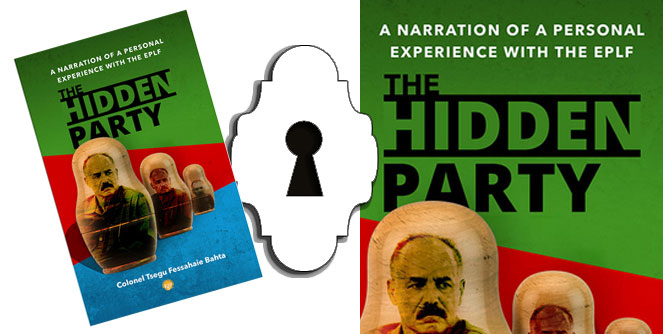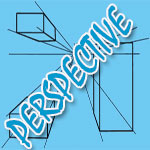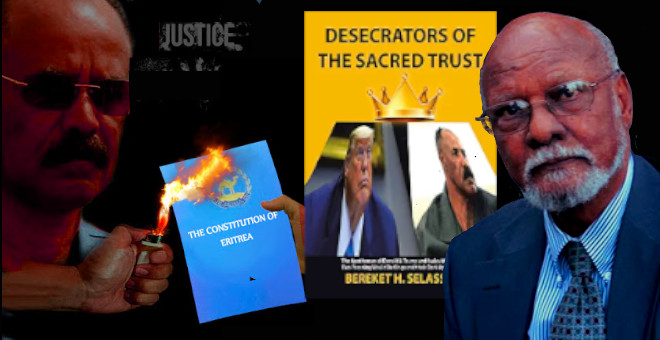A Book Review: The Hidden Party

Title: The Hidden Party: A Narration of a Personal Experience with the EPLF
Author: Colonel Tsegu Fessahaie Bahta
Price: $29.95
Pages: 250
Year: 2019
Publisher: RSP, The Red Sea Press
“Eritrean revolution was a deep cliff with noble intentions.” Pg. 86
THE HIDDEN PARTY tells the story of Tsegu, his siblings, his generation, and the EPLF in a riveting and engaging way. I’ve not only read the original Tigrinya version but was responsible for editing it, but, to my greatest delight and surprise, I found the English translation, if not more, equally captivating. The English words spoke to me in a much subtler and deeper manner. Quite often, a lot is lost in translation, but in this one, it might have given it more profundity. The nuances of the English words have lent it more buoyancy and poignancy. Words are not only the carriers of knowledge, but they also draw the boundaries between the subtleties and intricacies of our thoughts, feelings and attitude. The accuracy in the much more refined English language might have inadvertently given the book an added charm.
How I Know The Author?
In a spirit of disclosure, let me point out that I know the author. The first time I met him was at his uncle’s 80th birthday when many compatriots gathered to honor Dr. Bereket. I was the Master of Ceremony. The next day those of us who didn’t fly out were invited for lunch at Dr. Bereket’s home and Tsegu was there. The friends, food, drinks, and the whole ambiance was conducive for a great feast of intellect. There were many notable Eritreans—some of Eritrea’s best and highly educated minds. I was sitting next to my wife and Tsegu was in front of us, but I really didn’t notice anything spectacular about him before he said something. I was glued to him; he spoke with authority and knowledge that only comes from first-hand experience. I was intrigued and didn’t take me time to ask myself, “Who the hell is this guy?” Dr. Bereket came to the rescue and introduced the two of us, but we didn’t become friends immediately. I believe we spoke once or twice over the phone but that was the extent of our relationship. Occasionally, Dr. Bereket would mention his name.
Few years after our introduction, Dr. Bereket called to ask me if I would take a look at Tsegu’s manuscript, and, how could I say “no,” to the man who has privileged me with his friendship and avuncular relationship. Neither Dr. Bereket nor I were aware that one of the people Tsegu had dedicated the book to was my own late uncle, Russom Tekelemariam, aka Tarzan. The last communication my uncle had with the EPLF was through the late Vaynack, Tsegu and Sebhat Efrem. Tsegu has portrayed the gruesome details of his torture and death at the hands of the Derg; it made me cry, but even more importantly, more determined to fight on his behalf, my own father, uncles, aunties, and cousins. It is a sacred duty I proudly embrace to ensure that their sacrifices were not in vain. A free, just, peaceful, prosperous, and democratic Eritrea is their eternal gift to us all.
Did The EPLF Succeed Because of it or In spite of it?
THE HIDDEN PARTY is the story of drastic changes and revolutionary transformation of a young idealistic man, who became the ultimate insider of an organization that would be defined more by its covert party, than by the overt public organization, popularly known as the EPLF. The vanguard “Hidden Party” was not an instrument of leadership as it was originally envisioned by many of its good-intentioned members, but a mechanism of control to ensure that people were toeing the line. It provided cohesion and discipline, but, eventually, like all unaccountable governing entities, it degenerated to be its worst enemy.
The EPLF rose to greatness because of it, and also it fell because of it.
The Valineki Meeting of 1993 Changed It All:
There was one man, who was above the party, with the power to do anything he wanted with impunity. That individual was the current dictator of Eritrea, Isaias Afwerki. When Isaias became the Secretary General of the EPLF in its second congress in 1987, it didn’t take him long to “freeze” the very secret party that brought him to power. He was in full control of the EPLF, and the party that enabled him to control his predecessor was no longer needed; it has to be eradicated since it could be used against him. The secret party was kept dead till the liberation of Eritrea, but with the uncertainty that came with independence, it was deemed necessary to resurrect it. In the Valineki meeting of 1993, the secret party resumed its functions and Isaias started to attack his old colleagues as “rotten” and called for the “new warm blood” to take their place. Tsegue doesn’t only think this meeting marked the end of the old EPLF leadership but the beginning of a new party beholden to Isaias only. Isaias and his “new blood…had secretly founded a secret party…” In the absence of the National Assembly and the PFDJ that only exists in name, Tsegu thinks that it is with this new party that Isaias maintains his firm grip on power. This new party of loyalists is mostly made of people who came from the old EPLF’s mass organizations in the Diaspora. They are a coterie of “Yes men” ready to do the dictator’s bidding. Their rise to power has been at the expense of the real heroes who led the EPLF to victory.
Tsegu’s book is the tragic story of the upward surge and downward spiral of the EPLF. If service, sacrifice and love of country drove the young idealistic freedom fighters, who joined the ranks of the EPLF, then, control, dominance and love of power was what preoccupied most of the top political leadership. The symptoms of the EPLF malaise was there from the beginning; it only became more apparent in the liberated cities of the late 1970s. Corruption and bad behavior, like blood, circulated in the liberated areas behind the frontlines among the non-combatant cadres and in the upper political echelons of power.
Unlike sunshine, secrecy proved to be the worst disinfectant. The behind frontlines, where non-combatant viruses multiplied, became the swamp of scheming, machinations and conspiracies. It was a place where self-sacrifice and comradery went to die. The frontlines and behind frontlines had two completely different ethos. In the former, a freedom fighter lived by the spirit of true comradery where one was expected to self-sacrifice so the comrade could live, while in the latter, it was the complete opposite: “you die so I can live.”
If anyone wants to understand the current widespread corruption and ineptness in administering civilians and cities, the late 1970s EPLF-administered cities, towns and the areas behind frontlines should serve as a preview. Dekemhare was a good example of a place where the excesses of the new rulers became an outright abuse. What we are witnessing today in an independent Eritrea is that history repeating itself in a much larger stage. The unbridled ambition of one man and his insatiable thirsty for power and the readiness to do whatever it took to get it, was inevitably going to lead to dictatorship. The liquidation of Menka’e, Btsay Goitom, Yemeen and many others was the precursor of what was to come. Tsegu’s martyred friend, Wedi Rezene, knew it. In a King David kind of fashion, his superiors sent him to the frontlines to be killed. “Whoever was considered a hindrance to them had to be removed at all costs.” (pg.128)
In a system obsessed with control and conformity, fear and suspicion become endemic. Dissention becomes treason, citizens become subjects, freedom fighters turn into mill-of-the-run soldiers, and opposition parties become enemies, dictatorship becomes a necessity. Dictatorship is a congenital malformation of the EPLF. It was conceived in Sahel, started walking in the liberated cities, towns of the late 1970s and the swamps of cadres and political leaders behind frontlines, and came out of age in Asmera after the independence of Eritrea.
Juxtaposing The Life of An Individual And That Of the EPLF:
Tsegu’s book is a juxtaposition of an intimately personal and organizational life of a young man who, during the revolutionary fervor that gripped Eritrea, left, on his own volition, to join the EPLF, the front that finally made Eritrea’s independence possible. He gave up the comforts his rising middle-class family have provided, and more importantly, the promises of a brighter future and endless possibilities that come with a college education in an era, where the one-eyed man was the king in the kingdom of the blind. What makes his story even more compelling and intriguing is that he was merely following the footsteps of his three siblings: his two older brothers, Isaias, a pharmacy graduate with a two-year professional experience, and Amanuel, a second-year Engineering student. Both brothers attended Haile Selassie I, the most coveted and premier university, at the time, in Ethiopia. The younger brother, Mussie, joined the EPLF from high school. Amanuel and Mussie never made it home and Isaias soon joined them after independence.
Eritrea is a country where the martyrdom of three heroes in one family does not raise eye-brows and Tsegu certainly doesn’t think his family is special; and that I believe is a tragedy because it makes us passively accept the abnormal as the normal, and the extraordinary as ordinary. There are many Eritrean families who have made similar sacrifices, but their high number doesn’t make their sacrifices less special and less extraordinary. There might have been a place for stoicism in our past; it is a great coping mechanism, but the recognition of families, who shouldered the brunt of the sacrifices deserve our special attention, utmost respect and recognition. The nation owes them a lot. These are the unsung heroes legends are made of. So many In-Search-of-Private-Ryan-like movies should be made in Eritrea, in the future, by Sembel-Wood.
Service And Sacrifice Began with The Father:
The story of Tsegu and his sibling began with their father. As a young man, Aboy Fessehaye moved to Asmera, leaving behind the idyllic life of Geremi, his ancestral village in Karneshim, imbibed with a love of education and a better life for himself and his future family. It was in Asmera that he met the daughter of the famous protestant preacher, Qeshi Habteselassie, the father of his even more famous sons, Elias and Dr. Bereket Habteselassie. Aboy Fessehaye was able to raise his family in the typical protestant ethos of love of God, love of country, love of thy neighbor, excellent work ethic, love of education, commitment to the family and the general welfare of the society. The small Kenisha community has contributed its lion’s share in the promotion of health, education, literature, and the arts in Eritrea. The Fessehaye Bahta family was the embodiment of this culture, a Christian evangelism manifesting itself in the service of humanity. It was the Gospel of service and sacrifice that shaped Tsegu and his siblings. It is this commitment that keeps Tsegu going in his last round of duty: first as a freedom fighter of the EPLF, second as a civil servant in independent Eritrea and now as an author and a democratic and Human Rights activist speaking on behalf of the voiceless and oppressed.
At his core, Tsegu is the quintessential city-slicker. In the city that speaks a mélange of languages, he was your typical “Asmarino:” urbane, cool, suave, and the ultimate ladies’ man who doesn’t shy away from telling his many romantic escapades. In a way, he was a typical teenager and young man in love with everything that his city had to offer: dating, dancing, music, drinking, and hanging out with his friends. He was an academically gifted student who loved reading books, a passionate love affair that has only intensified with age. Tsegu is an avid reader and thinker, but his conviviality, social drinking and partying might give one the wrong impression. During his youth, his many extra-curricular activities got in the way of his studies, but none more so than his clandestine activities with the EPLF that went back to his high school days. It is this activity that has completely changed his life, his siblings’ life and family. When his cover was compromised, Tsegu was left with no choice but abandon his university education and join the EPLF. He was a beginning freshman studying to be an engineer.
The Evolution of Halewa Sewra:
At the EPLF, Tsegue was assigned to the Halewa Sewra, a security agency originally formed to defend the revolution from “subversive “ elements from within. The Menke’a group were already liquidated before he joined the EPLF and if it was not for Teklai Aden, no one would have known that the Yemeen group were killed by the alleged order of the late Ali Sayed Abdella at the sole instruction of Isaias Afwerki. This colossus failure of moral leadership and cowardice of EPLF’s top leaders and cadres is what haunts Eritrea today. As long as we fail to exorcise these demons of our history, we shall never be free. It is amazing how many cadres and leaders of the EPLF walk today without any sense of guilt for failing to stand up for their former comrades, school mates and friends and holding the responsible parties to account. To add insult to injury, the families of Menka’e, Yemen and the likes of Btsay Goitom were never notified of their death. We owe it to ourselves to ensure that justice is served once we dismantle the dictatorial regime of Isaias Afwerki.
Eventually, the Halewa Sewra morphed into a normal intelligence agency and Tsegu’s role in it couldn’t be underestimated. He played a major role in ensuring the humane treatment of Ethiopian POWs. By translating the relevant literature, he ensured compliance with the Hague Treaties on POWs.
Tsegu’s book is a great addition to the scant literature on our liberation fronts. There are many interesting characters in the book that show human virtues and vices, self-sacrifice and selfishness and these are people we know or have known not long ago. This makes a huge difference. It takes courage to be honest. If anyone wants to know the few demons and the many angels that made the EPLF, this book would offer a small window into the vast history hall of the EPLF.
I strongly recommend this book.
To purchase a copy of Tsegu’s books, English and Tigrinya, please click on tsegu.com or the RedSeaPress



Awate Forum